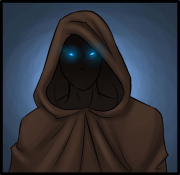|
"Pathfinder outsells D&D, it's a fact!" "Okay, so where are the numbers?" "Well I don't have any, but have this meaningless top 5 chart compiled from uncited sources during a year that D&D wasn't actually selling anything, it shows that Pathfinder is beating D&D!" "Again, do you have any sort of numbers or stats or something?" "Well the head of Paizo said so!" Simply amazing.
|
|
|
|

|
| # ? May 24, 2024 10:53 |
|
Evil Mastermind posted:But again: when you get right down to it, it doesn't matter at all which outsells which because that's a separate point from "did the game turn a profit", and has nothing at all to with "which game is the better of the two". Maybe people were misunderstanding my original point. I didn't mean to say that 4E didn't make money, I'm sure it made quite a bit. To me it was a commercial failure because it fractured their consumer base and caused a chunk to bolt for Pathfinder. You can see this dynamic playing out right now where 5E which was intended to put humpty dumpty back together instead caused all of the 4E grogs to balk.
|
|
|
|
Oh, well if we're casting blame for what fractured D&D's market the way it went then I'd say the more relevant thing is the creation of the OGL which allowed Paizo to essentially lift 3.X wholesale and repackage and resell it as Pathfinder. So you should really be blaming 3E (and Ryan Dancey) for that one.
|
|
|
|
bunnielab posted:As someone who is getting back into RPGs after two decades of absence, the seemingly huge emphasis 4ed has for minis and grids is a huge turnoff. Am I mistaken about this? Grid + minis was THE selling point for me and my group. We transitioned from board games, and having a defined terrain and representations of characters/enemies really eased them into it. Before that, whenever I'd talked about combat (the most important part since we basically just didn't care about any other aspect of the rules) my players were turned off by defining things in feet and yards or whatnot. "Squares" were much easier for them to visualize and it helped with their sense of place. When you look at the terrain, and the book says "push the target 4 squares" that is way easier to understand than defining it as 20 feet because that's one less calculation to have to do. Also, we didn't even own minis for months. I bought the grid, but we used coins, dice and tokens for a long time before we dug up old Heroclix and Mage Knight minis to use.
|
|
|
|
Kai Tave posted:Well D&D3E had an equally significant emphasis on minis and a grid, it's just everyone convinced themselves that it didn't matter. It was really the first thing I noticed and never being a fan of mini based games it was off putting. I am 1/2ed old and I don't recall those rule sets really touching on them. I think I have some huge "power of imagination" rose colored glasses on though. But man, my memory of drawing combat "maps" on large grid paper and roughly moving dudes around via erasing and redrawing seemed so cool, like planning football plays for nerds.
|
|
|
|
Dr. Tough posted:Maybe people were misunderstanding my original point. I didn't mean to say that 4E didn't make money, I'm sure it made quite a bit. To me it was a commercial failure because it fractured their consumer base and caused a chunk to bolt for Pathfinder. You can see this dynamic playing out right now where 5E which was intended to put humpty dumpty back together instead caused all of the 4E grogs to balk. Oh, well that's different. The problem is that there was no way they could have released a new edition of the game with new mechanics and made the "D&D is this and this and that forever" crowd happy because all that crowd wants is more of the same.
|
|
|
|
I don't think that fracturing the market is inherently a bad thing except insofar as there is a practical limit to the publishers' investments in making games with decent production values, and to the pool of players upon which you can draw to find a game with people who share your interests (especially if you're not into PbP or roll20 type gaming)... which unfortunately is to say it is sort of a bad thing in practice, except forcing people to all play the same system together and let half of them be more or less miserable isn't a solution either so what can you do? The other reason why fracturing can be considered a bad thing is because it gives certain types of people on both sides of the aisle something to swing their figurative dicks (or strapons, I guess) around about, but those sorts of people are going to do that no matter what. If it wasn't editions they'd just be grogging even harder than they already do about gender minorities or whatever.
|
|
|
|
bunnielab posted:It was really the first thing I noticed and never being a fan of mini based games it was off putting. I am 1/2ed old and I don't recall those rule sets really touching on them. If you don't want to do minis but still want a fantasy RPG you could always try Dungeon World or RuneQuest or something.
|
|
|
|
BrainParasite posted:Pathfinder out sold 4e for four nonconsecutive quarters starting three years from the release of 4e. Assuming ICv2 is reliable. This in the ~5 years both Pathfinder and 4e were commercially available and does not include the 4e launch. gradenko_2000 posted:1. D&D has always been about minis and grids, to the point where the AD&D rulebooks namedrop the TSR BATTLESYSTEM (TM) in the middle of a rules paragraph like it was Will Smith's Converse All-Stars. The trick was embracing the truth: with how much players engage in combat, the designers gave everyone tools to meaningfully engage with the combat mechanics all the time.
|
|
|
|
Bieeardo posted:The same story claims that Wizards has been trying to buy the rights holders off, to no avail. They actually took them to court, arguing dinky straight to syfy TV releases don't actually count as movies. I don't know what the current status of the case is, tho. The actual story is even weirder, but I'd have to look up the details later.
|
|
|
|
I have a lot of sympathy for the designers of 4E. Just bringing balance to the Embracing a division of labor that had recently been widely recognized and given name in online games was another genius move that was also obviously a turn-off for a group of people who regarded online games as a bastardization ("dumbing down") of their own beloved passtime. Of course, thieves had always been Strikers and wizards had always been controllers, etc. but "it's too much like WOW" was a constant refrain during the year after 4E came out, when so many grogs were railing against it online. Creating that framework gave the game a lot of power to define new classes within and straddling the archetypes, though. Brilliant. Reducing the number of "trap" choices meant eliminating useless skills. How many grogs did we see bitch that Profession: Blacksmith was gone, and therefore their characters couldn't be blacksmiths? 4E marketing and intro materials I guess needed to do a better job of emphasizing that that sort of flavor was actually improved, by decoupling it from pointless mechanics. But "simulationists" (god I hate that term) couldn't quite accept the idea that you wouldn't be rolling a die to see how good your blackmith smithed today. Embracing the grid meant most combat powers directly addressed the grid. Grogs thought this made them too "samey," like, different classes just felt too similar. They were recognizing a unifying mechanic and a further decoupling of flavor from mechanics and disliking it on instinct. D&D 4E's design is elegant in a way no previous edition of D&D achieved, but having taken enough steps to guarantee that it'd be divisive for old-time players, I wanted it to just go the rest of the way. Why did characters have to be restricted by the six holy ability scores? The numbers worked fine, but there's still that remnant of "if your WIS score is low, that means your character is foolish" and "if your STR score is high, that means you're a musclebound bodybuilder." And why does a character who has X Y and Z powers and A B and C skills have to be "a rogue"? Well, because D&D can't possibly be a classless system, right? We've seen those before, and they're Not D&D. D&D still has to have levels and hit points (and oh my god, healing surges undermine that! How can hit points be wounds if you can recover them just by being encouraged by an ally??? Quoth the grognards, because the idea of mechanics being an abstraction is antithetical to the perception that perfect mechanics describe the physics of a world perfectly...). D&D has to have a Barbarian class, why isn't that in the PHB? Where are my beloved gnomes? What the gently caress are these dragonborn doing in the game when there's no gnomes??? When I heard that work was starting on 5th edition, my hope was that D&D would continue the direction that had been started - in my view, wildly successfully - by 4th. Finish the job. They were reprinting classic editions of D&D, and Pathfinder was out there for the people who wanted to play that way, who wanted that sort of game. The player base was already divided: instead of going after the players who left because they hated 4E, just keep the 4E players and add on new players who might be attracted to a more modern, more integrated, tighter system that fully embraced the improvements begun in 4E. I don't expect 5e is going to actually "fail" in the sense that it'll be fully rejected by the marketplace. But I also don't think it's going to "succeed" in the sense of stealing back most of the players who went to Paizo. Given who is in charge, I don't have high hopes that Wizards is going to learn the right lessons from this.
|
|
|
|
Asimo posted:Pretty much. There's a reason AD&D gave distance measurements in inches (as in, inches on a tabletop). This is one of the most galling parts of the whole superficial tribal slapfight. The worst people that D&D5 has explicitly catered to are the people who either knew nothing or just lied about what was wrong with D&D4, because any of those hardcore grogs who didn't want it but wouldn't shut up about it would act like it was this radically different beast from 3PF. They'd act like it totally reinvented things that were either simple, decidedly iterative outgrowths of what 3.x already did (ability timers, conditions, chucking blacksmithing out a skyscraper window instead of giving it a subsystem no one uses), or outright didn't change at all (grids, weapon tables), and even worse they'd pretend that previous editions were free of this math-y scourge, because D&D4 was so tightly designed, as if that didn't mean that previous editions were just full of bad math. It has always boiled down to the fact that it tried to be colorful and accessible. I'd put money down that if we traveled to an alternate universe where D&D4 had been yet another dirty-parchment-looking piece of poo poo that didn't color-code its class abilities, we'd have at least a 50% chance of finding a universe where Paizo didn't roar through the market like an ogre. Yes, even with how important the OGL is to why and how Pathfinder happened.
|
|
|
|
Leperflesh posted:Reducing the number of "trap" choices meant eliminating useless skills. How many grogs did we see bitch that Profession: Blacksmith was gone, and therefore their characters couldn't be blacksmiths? I actually met one when my group invited him to our 4e game. His character's whole shtick was "is a blacksmith" and he actively avoided combat. e: although it was pretty funny when a black dragon landed in front of the party, and he ran and hid while the rest of us fearlessly charged and killed it.
|
|
|
|
4th edition wasn't a commercial failure, but Essentials very well might have been. I'm not quite sure why a lot of people on this forum insist that crunchy games are bad or that crunch heavy games don't have broad appeal. There is a huge amount of confirmation bias there due to the sort of people who actually bother to get online and talk about RPGs, especially people who come to Something Awful to talk about it. Not to put too fine a point on it, but RPGs and model trains have a huge market overlap. RPG players tend to be the engineer technican types who like rules and like feeling clever for fitting them all together, at least if you're to look at the big lists of RPG book best sellers. All of them are crunch heavy games D&D, various Star Wars licensed games, FFG's 40k games, Pathfinder, and at one point White Wolf properties. The only rules lite game that makes even a dent in the market is FATE.
|
|
|
|
It's hard to sell two dozen hardback books of supplemental rules for a rules-lite system.
|
|
|
|
Terrible Opinions posted:4th edition wasn't a commercial failure, but Essentials very well might have been. Crunchy games are amazingly fun if the crunch actually serves a purpose and is built towards a goal. The problem is mostly that a lot of crunchier games have a lot of moving parts and not a lot of actual design focus. Making a good crunchy game takes a ton of time and playtesting.
|
|
|
|
Terrible Opinions posted:4th edition wasn't a commercial failure, but Essentials very well might have been.
|
|
|
|
Dr. Tough posted:I'm really not sure how grognards are going to "gatekeep" people out of the hobby. I have a really hard time imagining that a group of high school kids getting into RPGs are going to give a poo poo that some random people on the internet think that story games aren't real RPGs or whatever, assuming that they even have a chance to encounter those opinions in the first place. Not to dogpile you, nor is this part of the sales argument, but I have literally seen such a scenario play out before me more than once. Internet nerds have a real-life presence too. Once, it was a mother looking to buy a game for her son, because he liked that World of Warcraft, and did they have anything like that in the store? Fatbeard comes up to the counter and starts talking over Teenage Nerd running the register, decrying World of Warcraft and that game is for babies and blah blah blah. She left and did not purchase anything. Another time, it was the Old Nerd working the register, and a teenager came up and wanted to know about D&D 4E, which had just been released. Despite having the books on a shelf in line of sight of the register, Old Nerd proceeded to loudly berate 4E for not being Real D&D and how in my day we rolled THAC0 uphill both ways in the snow, etc. This is a hobby where, if you're not already deeply immersed in the thing to begin with, your primary introduction, point of sale and play space is through the local game store. The owner of this store would never do anything to argue a customer out of spending money, because he wasn't a total moron. That doesn't preclude other morons from working there or patronizing the place. Plural of data and all, but if you don't have somebody at your local shop who isn't That Guy, you're doing better than a lot of people.
|
|
|
|
Night10194 posted:Crunchy games are amazingly fun if the crunch actually serves a purpose and is built towards a goal. The problem is mostly that a lot of crunchier games have a lot of moving parts and not a lot of actual design focus. Making a good crunchy game takes a ton of time and playtesting. Saying a game isn't good doesn't mean that a game isn't popular. I'd agree that there should be better crunch heavy systems like 4th edition. However other people have been saying that 4th edition's failing was that it was crunch heavy, which is completely fail given the limited sales figures we have. Halloween Jack posted:I wouldn't say that detailed rules are unpopular, but I have questioned the place of highly-detailed universal systems in the market. By which I mean Rolemaster, Hero, CORPS and EABA, etc. I suppose GURPS is fairly detailed and fairly popular. I'd completely agree with you that generalistic systems tend to be boring and sell very little. It's likely that they just have nothing to grab new customers with. A system needs something for players to actually do. GURPs main strength seems to come in the fact that each of its individual supplements tends to be rather tightly focused around a specific genre, and the ones that stray from this pattern such as GURPS vehicles tend to sell poorly.
|
|
|
|
Terrible Opinions posted:4th edition wasn't a commercial failure, but Essentials very well might have been. Crunchy games, in a general broad-speaking sense, aren't bad. A lot of crunchy RPGs are bad because they're made by people who don't understand how to make good crunch. People, in general, aren't too dumb to be able to figure out something like 4E if they really want to, but I question how many of them would actually want to. Speaking only anecdotally, I know that the crunchier and more involved a board game is the harder a sell it is to people at my local FLGS' board game night. I can find people who are excited to play Kemet, for example, but it's a much smaller group than the people who are more interested in playing Machi Koro or just playing Werewolf or something. It's also not necessarily a question of how complicated a game's rules are, it's how involved and time-consuming they can be to chunk your way through. Neither Pathfinder or 4E are hard games to understand on a fundamental "I do X in order to do Y" level, but imagine sitting a new player down in front of 2,000 feats and telling them they get to pick one of those for now.
|
|
|
|
Kai Tave posted:It's also not necessarily a question of how complicated a game's rules are, it's how involved and time-consuming they can be to chunk your way through. Neither Pathfinder or 4E are hard games to understand on a fundamental "I do X in order to do Y" level, but imagine sitting a new player down in front of 2,000 feats and telling them they get to pick one of those for now. This is one of the things that WoD really excelled at that it doesn't get enough credit for. Siloing initial character options, on top of the quickly-grasped dots system, makes the core game very accessible. WoD games are typically the quickest pick up-and-go of the bigger options in the industry, as long as you don't dump supplements or the pre-2010 worldbuilding fiction on your recruits.
|
|
|
|
Kai Tave posted:Crunchy games, in a general broad-speaking sense, aren't bad. A lot of crunchy RPGs are bad because they're made by people who don't understand how to make good crunch. I completely agree. Ushering in the second RPG renaissance, if at all possible, means drastically reducing the investment in learning systems. It's hard to get people to invest the time to learn a system, especially in the context of today's video games with thorough tutorials and the like. Part of the reason rule-less online roleplaying is so successful is that the barrier to entry is non-existent: you usually don't even have to be able to spell. As far a crunchy systems go, 4E did a lot to alleviate this pain. Classes and powers are pretty self-contained and the other subsystems are all pretty easy to get a handle on. You could probably fit everything except Feats and Equipment on about 10 pages, front and back, if you did it in 12pt sans-serif, dumped the images, and compacted a few definitions. But when you look at the 4E PHB table of contents, the Combat chapter is 30 pages long. I mean, they're easy-read pages, and you can do it quick, but psychologically that's a much larger investment. If it felt shorter and faster, it would be a way-easier sell. If Feats and Equipment could be similarly compacted, it might even have a chance! I'm not saying systems shouldn't be crunchy, but they should be consistent and concise even with the crunch if they're going to grab people that aren't already in the scene and wouldn't otherwise join it. grassy gnoll posted:This is a hobby where, if you're not already deeply immersed in the thing to begin with, your primary introduction, point of sale and play space is through the local game store. The owner of this store would never do anything to argue a customer out of spending money, because he wasn't a total moron. That doesn't preclude other morons from working there or patronizing the place. I actually have to FLGS because one of the stores was being run by a That Guy, and so an employee left and started another one. I am all about giving the new place my money, even if Amazon is cheaper, because it's one of the best FLGS I have ever been in.
|
|
|
|
This was genius when it was done the first time and it remains so. D&D has a rules-light, easy-to-get-started product. 
|
|
|
|
Speaking from complete anecdote, the complexity is what actually made D&D appealing to me and the group of folks I played with as a kid. Technically it was Battletech that did it back when that was newish, but that lead to some of the then-contemporary D&D boardgames (and the red box!), then BECMI and AD&D after. We were probably all spergs of various sorts, but having big books full of spells and charts and tables and all felt arcane and exciting, and learning how to wrangle all that stuff into being useful was half the fun. ... Problem is, this was almost thirty years ago. None of us had PCs (they were still expensive as hell), the internet just didn't exist, and there wasn't a hell of a lot of other distractions going on. I'm not sure that sort of appeal can really work again in the future; the sort of kids with personalities like that will probably just go play WoW or whatever its inevitable replacement is again and get all the socialization and system mastery that way for a fraction of the effort.
|
|
|
|
For real, if a board game has like a 30+ page rulebook that's enough to make a lot of people go "woah hey, that's a lot of loving rules here buddy, what gives?" D&D's PHB1, the book that it explains the basic rules of the game and contains most of the player-centric information, is like 320 pages. There are two other books about that size that comprise the core D&D4E experience. Whether or not there's a wider market out there interested in roleplaying that's waiting to be catered to or not, I feel confident in saying that wherever they are they probably don't want a game that comes in the form of 900+ pages worth of homework.
|
|
|
|
Even aside from the Red Box, both TSR and Wizards have been aware of that problem and tried to directly address it repeatedly. From quickstart rules to games day events where intro characters and adventures and rules are handed out for free, along with promo items, all manner of "you don't have to read this 300 page thing to learn how to play" stuff has been available. Pushing it only at game stores isn't enough, obviously, and the underlying game has to be very tight and balanced and good. I think 4E did that very well. I remember all kinds of promo stuff showing up. But I still never saw any of it at Toys R Us. Not that I hung around at Toys R Us, so I might have just missed that. I don't think there's been as much of that stuff for 5th, possibly because they just haven't got the budget for it. 
|
|
|
|
Alien Rope Burn posted:They actually took them to court, arguing dinky straight to syfy TV releases don't actually count as movies. I don't know what the current status of the case is, tho. That'd be great, if you would. Most of what I remember from that period is filtered through secondhand 'Gary's Ex is the Devil' nerd rage. Evil Mastermind posted:I actually met one when my group invited him to our 4e game. His character's whole shtick was "is a blacksmith" and he actively avoided combat. You should have told him to smith it.
|
|
|
|
Leperflesh posted:Even aside from the Red Box, both TSR and Wizards have been aware of that problem and tried to directly address it repeatedly. From quickstart rules to games day events where intro characters and adventures and rules are handed out for free, along with promo items, all manner of "you don't have to read this 300 page thing to learn how to play" stuff has been available. A lot of reviews of the 4E Red Box basically said that even for a quick-and-simple intro product it just wasn't very good at that, it wasn't very engaging, didn't have any major "wow" factor going for it, and I think it even had rules gaffes/compatibility issues with 4E proper. By many accounts it was a swing and a miss in terms of execution. Pathfinder's intro set is supposed to actually be really pretty good, but I mean, these things have existed for a while now and the next RPG golden age still isn't upon us. There are cheap intro sets, there are games based on popular nerd media licenses, there are crunchy games and rules-lite games and one-page games and games that cost a hojillion dollars and take up a whole bookshelf, but I'm pretty sure the fundamental issue is just that there isn't actually some big audience yearning to play tabletop RPGs that simply hasn't been catered to yet. quote:I don't think there's been as much of that stuff for 5th, possibly because they just haven't got the budget for it. It's just as likely that Next is uninterested in reaching out to new players since Next is basically D&D: Apology for 4E Edition Please Come Back From Pathfinder edition. It's inward-looking, not outward-looking.
|
|
|
|
Asimo posted:Speaking from complete anecdote, the complexity is what actually made D&D appealing to me and the group of folks I played with as a kid. Technically it was Battletech that did it back when that was newish, but that lead to some of the then-contemporary D&D boardgames (and the red box!), then BECMI and AD&D after. We were probably all spergs of various sorts, but having big books full of spells and charts and tables and all felt arcane and exciting, and learning how to wrangle all that stuff into being useful was half the fun. As a comparatively old hand at RPGs who somehow regularly ends up gaming with people who aren't old enough to drink, I don't think the latter is really all that true. From a bird's eye view, sure, leisure time is fungible, but there is a pretty steady stream of people with the above options and more who choose TRPGs because that's just what they're after. Unfortunately, even for those who actively enjoy crunchiness, the general awfulness of available games means that they cling tenaciously to someone experienced who already plumbed that poo poo. I'm not exactly a social butterfly, even in the RPG scene, but somehow I hear a crazy amount of stories or direct sentiments along the lines of "I would not have gotten into this if someone were not here to cut through the bullshit and explain it to me." There are very few good introductory efforts in the modern industry, and most of those are niche indie games that can be hard to find.
|
|
|
|
Kai Tave posted:It's just as likely that Next is uninterested in reaching out to new players since Next is basically D&D: Apology for 4E Edition Please Come Back From Pathfinder edition. It's inward-looking, not outward-looking. It fails at that though by stripping out any amount of interesting customization that 3.5 and Pathfinder accumulated over their hundreds of supplements. It's only real audience are 3.5 grognards who insisted on core only. The people who are still on the Paizo boards whining to high heaven about bloat every time a new book is released.
|
|
|
|
I'm really sad that so much generally good art is wasted on D&D5.
|
|
|
|
Plague of Hats posted:As a comparatively old hand at RPGs who somehow regularly ends up gaming with people who aren't old enough to drink, I don't think the latter is really all that true. From a bird's eye view, sure, leisure time is fungible, but there is a pretty steady stream of people with the above options and more who choose TRPGs because that's just what they're after. Unfortunately, even for those who actively enjoy crunchiness, the general awfulness of available games means that they cling tenaciously to someone experienced who already plumbed that poo poo. I'm not exactly a social butterfly, even in the RPG scene, but somehow I hear a crazy amount of stories or direct sentiments along the lines of "I would not have gotten into this if someone were not here to cut through the bullshit and explain it to me."
|
|
|
|
Terrible Opinions posted:The people who are still on the Paizo boards whining to high heaven about bloat every time a new book is released. Which is hilarious, because they're playing games whose whole business model is based around putting out more and more content on a regular basis. D&D and Pathfinder live on their bloat.
|
|
|
|
Asimo posted:Oh, I'm not saying that there isn't time for folks to RP, or that it's impossible to get new people involved, or what have you. Just that the social environment has changed drastically since the 70s and 80s and I suspect a fair bit of the grognard sorts had experiences similar to mind and don't really understand that you'd probably need something a lot more rules-light, something that's really focused on online play and interaction, or both to really get good attention and growth these days. To be fair I'm a millennial and it really wasn't that much harder to get people to memorize 3.5 and 4th edition's rules. WoW wasn't really a distraction unless the person playing WoW was one of the hardcore high level raid guys. I think you're jousting at windmills here. RPGs by their very nature take a huge time investment or else have to be built for short term games. If your game is short term and built around one shots it's never going to get a big following because it'll be regarded as just another board game. I would never for instance go online and sign up for a forum to discuss the mechanics of Kobolds Ate my Baby for the same reason I wouldn't join an online community dedicated to Town of Salem. If it's a very small time investment RPG then it is to larger more involved RPGs as iphone games are to huge rear end PC games. The best you're going to hope for in terms of attention and growth is the equivalent of angry birds. A bunch of people would have heard of it and play it from time to time, but it isn't going to appeal to the core audience of roleplayers and isn't really going to compete for their market either.
|
|
|
|
Terrible Opinions posted:It fails at that though by stripping out any amount of interesting customization that 3.5 and Pathfinder accumulated over their hundreds of supplements. It's only real audience are 3.5 grognards who insisted on core only. The people who are still on the Paizo boards whining to high heaven about bloat every time a new book is released. Well Next isn't very good in a number of respects, but when the head of D&D goes on a podcast and starts making fun of Warlords shouting hands back on it's pretty undeniably clear that a huge part of the attitude that's gone into pitching Next to people is "did you hate 4E? We do too! So buy our poo poo!"
|
|
|
|
Kai Tave posted:Well Next isn't very good in a number of respects, but when the head of D&D goes on a podcast and starts making fun of Warlords shouting hands back on it's pretty undeniably clear that a huge part of the attitude that's gone into pitching Next to people is "did you hate 4E? We do too! So buy our poo poo!" Oh I don't doubt it's the intent. I'm saying that it failed to appeal to the main portion of people playing Pathfinder.
|
|
|
|
To be fair, I doubt anything would get those people back short of a time machine and going back to ensure 4e never happened.
|
|
|
|
You guys realize that the "next generation game" that could bring in new players and reach untapped markets actually happened some time ago, right? It was called Vampire: the Masquerade. Look how well that turned out.
|
|
|
|
^^^It turned out pretty well actually. Not many other TRPGs get TV shows made after them or even video games for that matter. Vampire was an unequivocal no-fooling shot in the arm for elfgames. Of course it also came out at a time when Magic: the Gathering, World of Warcraft, and online console gaming didn't exist.Mors Rattus posted:To be fair, I doubt anything would get those people back short of a time machine and going back to ensure 4e never happened. What are you talking about, it's a perfectly viable strategy to spend all your time and effort chasing entrenched tribalist diehards who left for a rehash of an older product and decided to build part of their identity around it, that's why Coke spends so much time trying to placate diehard Pepsi drinkers after all.
|
|
|
|

|
| # ? May 24, 2024 10:53 |
|
I honestly think that using D&D to draw in huge new crowds to RPG is kind of a lost cause. It's like publishers pumping huge amounts of money into horror video game IPs and expecting them to make AAA money. D&D can continue on as it is making a sizable amount of money off its current customer-base and the engineers of future generations, but it's never going to "make RPGs mainstream" or replace video games or anything. It's like trying to use a hammer to cut down a tree, just the wrong tool for the job. Rules lite and story games can draw in crowds from the drama club kids and the adults they group into, but it still isn't going to be some huge golden age. That's because RPGs like all other forms of media have distinct demographics that very from game to game, unfortunately for RPG developers each demographic tends to be fairly small. So if 4th edition is too crunchy for you it's probably just because you're not the target audience and they don't have to appeal to you. Plague of Hats posted:I'm really sad that so much generally good art is wasted on D&D5. Also reused a lot of art from 3.5 and 4th edition.
|
|
|































